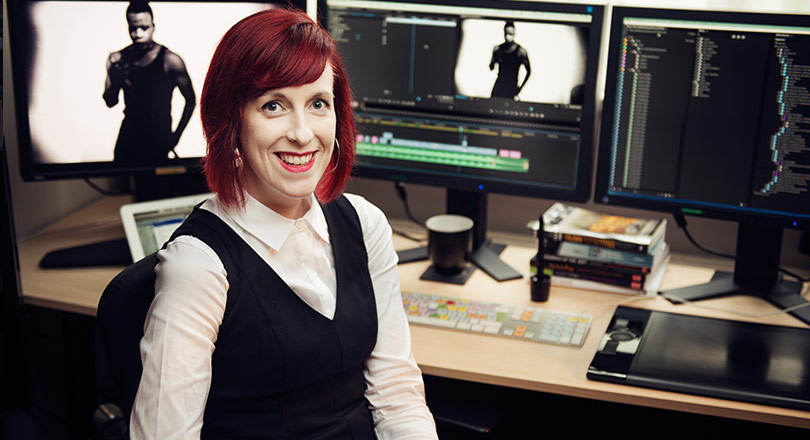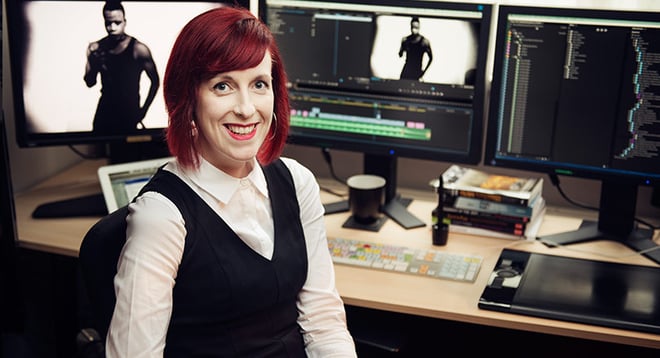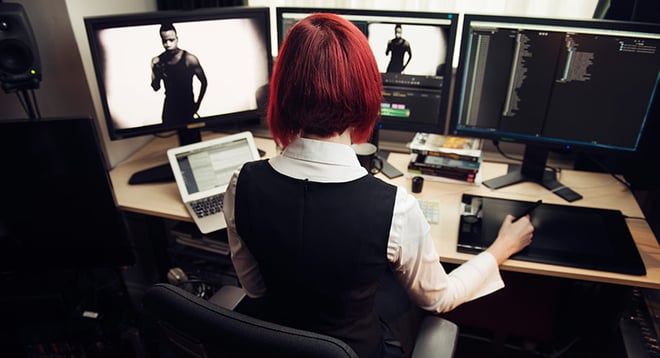How did your passion for the music scene develop?
I grew up in a very musical household. My mum sang in choirs and musicals, so before I was walking, I was singing, and so was my family. Many a car journey was accompanied by our warbling over Barbara Streisand and Celine Dion. Once in school, I was handed a violin, sang in all the choirs and played in all the orchestras, until I left for sixth-form at sixteen.
My hometown was a run down suburban commuter town, without much to occupy me, and many people my age formed and supported DIY punk bands. So I went to a lot of gigs, throwing myself around in basement clubs and the back rooms of pubs, it was wonderful.
That connection with music meant it was very natural for me to go into editing, there’s a lot of musicality in editing.
So music was always there, but the thing I felt most passionate about was film and television. I was captivated by Sister Act, and recorded the whole film on cassette so I could listen to it over and over again on long car journeys. Later on, I would obsess over The Craft which coincidentally coincided with my teen self gravitating towards a gothic aesthetic that I’ve never really left behind.
Then, Buffy: The Vampire Slayer hit our small screens, when both me and Buffy were teens. We grew up together, and it was the first time my poor, angst-ridden self felt understood. To feel validated at a time filled with insecurity and isolation is incredibly powerful, and my interest in the series served to introduce me to television critique and academia, ultimately fuelling an interest in how these stories were made.
Where do you look for inspiration?
I am a strong believer in something that Jim Jarmusch calls Strummer’s Law which is “No input, no output”. As a creative, it would be folly not to seek out and enjoy the creations of others, both for inspiration and a welcome brain break from your own projects.
So as much as possible, I try to embrace that sentiment and make room for it. That might be visiting the theatre or museum exhibitions, reading books and comics, listening to radio plays and podcasts - anything outside of the world of film and television, and the further outside the better.
I try not to rely on blogs to curate information and content for me. There is so much pleasure to be had from chasing a thought through YouTube or Spotify, or spiralling down a Wikipedia hole and seeing where it will take you. This is how I find and develop my creative voice that is unique to me.
Recently, I went on a trip to Amsterdam for a tradeshow and a friend gave me the first four issues of indie comic The Wicked and the Divine for the flight. I hungrily consumed all four issues before I had even got on the plane. It’s familiar, and yet dangerous and left me simultaneously stunned and creatively charged. It’s brave work that confronts mortality in a very immediate way.




